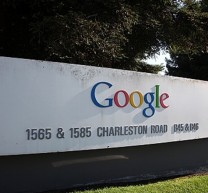Home | Solutions Blog | internet privacy
Posts tagged "internet privacy"

When was the last time you checked the internet privacy settings on your photocopier? Chances are your office is more vulnerable than you think.
The search engine Shodan, in operation since 2009, allows anyone to search for all of the public devices we leave connected to the internet around the clock. In addition to desktop computers and laptops, this includes printers, photo copiers, webcams, and more sophisticated equipment like traffic lights, nuclear power plants, air control towers and the electricity grid.
Imagine the prospect of someone gaining access to Laguardia’s air traffic control or Chicago’s power grid because of an unprotected network scanner that is connected to their larger network. Shodan helps hackers find those lonely, forgotten network devices so that they can be used as a back door to breach sophisticated systems.
Posted in Online Privacy by Identity Theft Speaker John Sileo.
Tags: internet privacy

It's not just hackers that make a habit of scooping your information. Google has had a notoriously dodgy record when it comes to user internet privacy – and some think it might have finally gone too far.
At this point, most of us accept that the marketplace is watching us all the time, or else we remain blissfully ignorant. Ads that respond to your browsing history are one thing, though: a company driving through your neighborhood and stealing your data is another. Thirty-eight states brought a case against the internet search giant recently for violating data privacy. Google has been charged a $7 million fine and will supposedly take efforts to stay further from user information. In the meantime, this action should serve as a reminder of how available your passwords, email conversations, and messages are.
Posted in Online Privacy by Identity Theft Speaker John Sileo.
Tags: "Data Privacy", internet privacy, online privacy
Are we entering an age where one’s digital reputation is a form of career currency – or are we already there?
That is the subject of an article in Forbes last month that gets some things right and others wrong. It absolutely seems like online histories and reputations could become more important than resumes, portfolios and credit scores.
Our digital footprints are already considered by others when determining if they want to hire or do business with us. And many people don’t even have a traditional resume anymore, but have substituted it with a LinkedIn profile.
Forbes goes through a handful of questions and offers its own answers on the topic. Yes, everything we do on the Web, from Facebook to Twitter to LinkedIn, is becoming more and more connected, meaning that they influence one another as well as how others perceive us. But, there are a few things that the article misses the mark on.
Posted in Digital Reputation & Trust by Identity Theft Speaker John Sileo.
Tags: digital reputation, internet privacy, Online Reputation
How secure do you think your email really is? Would you be surprised to learn that your inbox is scanned regularly, and not just by you?
Microsoft recently launched its humorously titled “Don’t Get Scroogled by Gmail” media campaign. The company commissioned a study that showed that 70 percent of consumers are unaware that free email service providers, such as Google, routinely scan their emails for information that allows them to deliver targeted advertisements.
Furthermore, 88 percent of respondents said they were opposed to this practice once they became aware of it. Now yes, Microsoft has an ulterior motive here. They’re not so much dedicated to your privacy as they are looking to convince users to switch from Gmail to Outlook. Let’s also not forget that Microsoft has long offered its own free email service, the all-but-forgotten Hotmail.
Google quickly responded to the media campaign taking swipes at Gmail with a statement of its own.
Posted in Online Privacy by Identity Theft Speaker John Sileo.
Tags: data security, internet privacy, online privacy
Facebook will now identify ads that have been targeted at users based on browser histories, ZIP codes and other data that advertisers collect. This is just a glimpse into the information floating around the Web about us.
According to a recent article in VentureBeat, a little blue triangle over an ad on Facebook will denote that it has been targeted for you specifically. But, don’t get too excited about this supposed transparency just yet.
For starters, it doesn’t reveal the specific information that led the advertisers to target you, nor does it specify how they obtained it. Furthermore, you have to jump through more than one hoop to even see the little blue triangle.
Posted in Online Privacy by Identity Theft Speaker John Sileo.
Tags: internet privacy, online privacy
Word broke last week that the chairman of the Federal Trade Commission (FTC), Jon Leibowitz, will step down from his post in mid-February.
During his four-year run, Leibowitz brought cases against two of the internet’s biggest companies – Google and Facebook – for violating their own privacy policies. He also spent time working on the expansion of the Children’s Online Privacy Protection Act.
An article in The New York Times cites several political figures with varying stances on his performance as the FTC’s chief. Most of the attention, however, has been focused on his actions to curb unfair competition practices in the United States.
While this is obviously the main focus of the FTC, it is frightening that online privacy is treated as the red-headed stepchild of the head of the FTC’s duties. As companies like Google, Facebook and Apple continue to grow in gargantuan leaps and bounds, their business practices are inextricably interwoven with online privacy rights.
Posted in Online Privacy by Identity Theft Speaker John Sileo.
Tags: “Prevent Identity Theft”, internet privacy, online privacy, online privacy training










